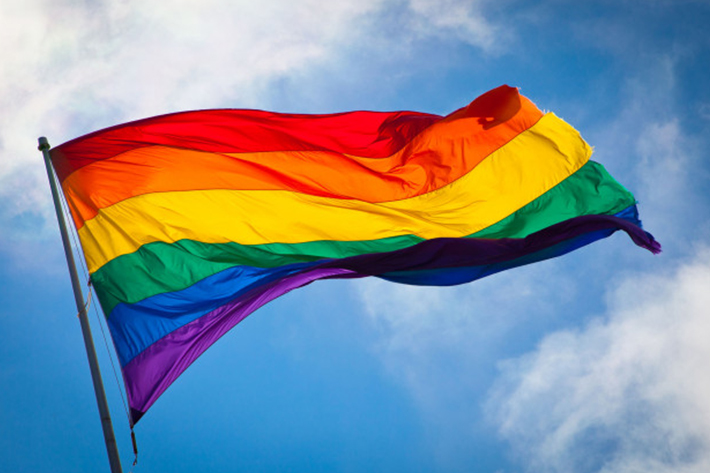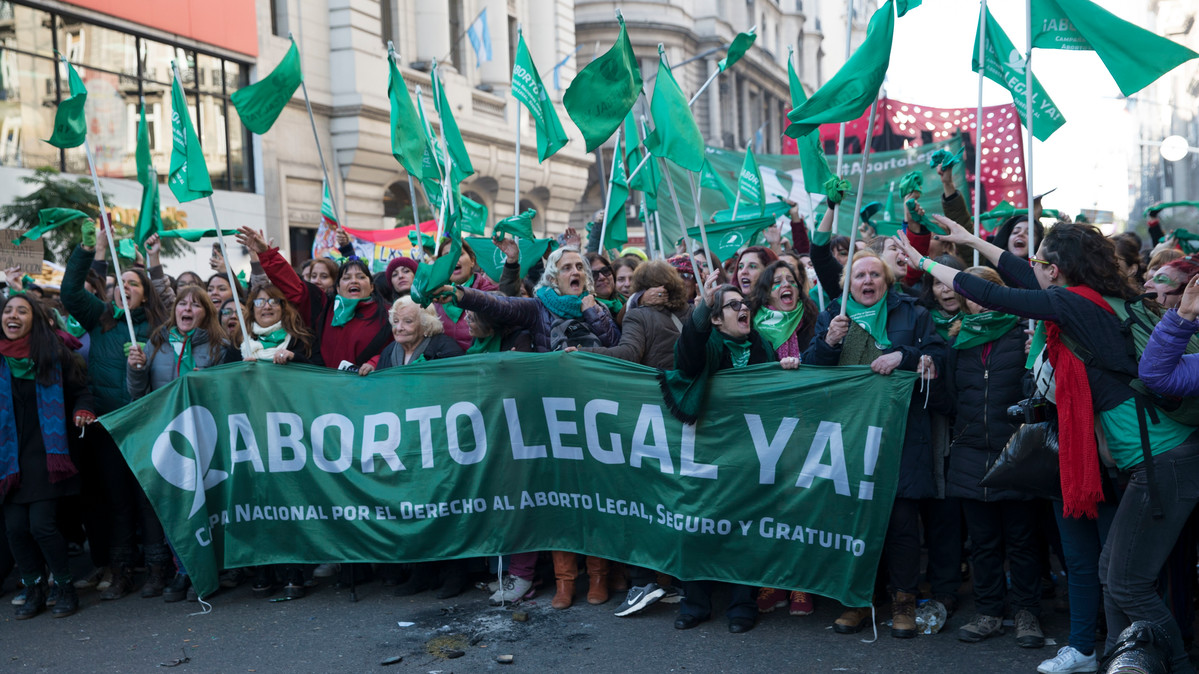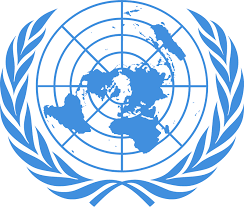
Spotlight
A selection of news from across the Federation

IPPF Statement on the 68th session of the Commission on the Status of Women (CSW)
IPPF welcomes the agreed conclusions of the 68th session of the Commission on the Status of Women (CSW), on the theme of “Accelerating the achievement of gender equality and the empowerment of all women and girls by addressing poverty and strengthening institutions and financing with a gender perspective”. IPPF actively engaged in the process by providing technical inputs to Member States, raising awareness about the interlinkages between SRHR, poverty, gender equality and the empowerment and human rights of all women and girls.
Filter our news by:


| 13 September 2018
IPPF welcomes Dr. Leana Wen as the new president of Planned Parenthood Federation of America
I am absolutely delighted that Dr. Leana Wen has been appointed as President of Planned Parenthood Federation of America. Dr. Wen is a dynamic public health leader, a practising physician and not least, a formidable woman. As the first doctor to lead Planned Parenthood in nearly 50 years, we send a clear sign that sexual and reproductive healthcare is an essential part of healthcare. This exciting appointment comes at a critical time for Planned Parenthood. Not only will Dr. Wen help Planned Parenthood continue to provide high-quality care to the people who need it across the United States, she will be a powerful voice in our fight to ensure women have the ability to make their own healthcare decisions. Dr. Wen has dedicated her career to expanding access to healthcare for the most vulnerable communities, reducing health disparities, and finding innovative solutions to address public health problems. She currently serves as the Commissioner of Health for the City of Baltimore. Over the last 18 months, Dr. Wen has fought to protect women and families in Baltimore from the Trump administration’s rollbacks of basic healthcare protections. In March 2018, on behalf of Dr. Wen and the Baltimore City Health Department, the City of Baltimore sued the Trump administration for cutting funds for adolescent pregnancy prevention, which resulted in a federal judge ordering the restoration of $5 million in grant funding to two Baltimore-based adolescent pregnancy prevention programmes. She has also fought the Trump administration changes to Title X — the nation’s family planning programme — to protect funding for 23 health clinics in Baltimore providing reproductive health care for women with low-incomes. As a practising physician, Dr. Wen has helped organize thousands of doctors and health professionals against President Trump’s proposed domestic gag rule, saying it fundamentally alters the nature of the doctor-patient relationship and will dramatically reduce the quality of care for thousands of women. “For more than 100 years, no organization has done more for women’s health than Planned Parenthood, and I’m truly honored to be named its president,” said Dr. Leana Wen. “As a patient, I depended on Planned Parenthood for medical care at various times in my own life, and as a public health leader, I have seen first-hand the lifesaving work it does for our most vulnerable communities. As a doctor, I will ensure we continue to provide high-quality health care, including the full range of reproductive care, and will fight with everything I have to protect the access of millions of patients who rely on Planned Parenthood.” - Dr Leana Wen On behalf of the IPPF family, I want to welcome Dr Wen to the Federation and I’m very much looking forward to working with her when she joins PPFA in November. - Dr Alvaro Bermejo, Director-General, IPPF

| 06 September 2018
IPPF welcomes India’s Supreme Court historic decision to free LGBTI communities from persecution
After generations of oppression under a colonial-era law, today the LGBTI community in India celebrated the scrapping of key provisions in Section 377 from the Indian Penal Code, which had previously outlawed consensual same-sex sexual relations. Following multiple legal challenges, the Supreme Court finally recognised that “158 years ago, the law deprived people of love”, and ruled that all people should be free from prejudice and persecution. A historic win for communities that have been pushed into the shadows, Chief Justice Dipak Mishra made it clear that “any discrimination on basis of sexual orientation amounts to a violation of fundamental rights.” Welcoming this ruling, IPPF Director-General Dr Alvaro Bermejo said: “Today is a historical victory for the LGBTI community in India. No longer will their human right to love, and to show that love, be violated by archaic laws. IPPF hopes that is this the first step of many to ensure that the LGBTI community are guaranteed their full fundamental rights and that social, economical, financial cultural and political inclusion of the LGBTI community becomes woven into the fabric of India’s national identity. Today's decision will bring new-found hope and energy to those LGBTI communities that are still suffering under repressive laws. I would like to thank the individuals and organizations that have fought tirelessly to make this happen. Without people fighting for change, change cannot happen.” Image by Courtesy Photo

| 09 August 2018
The Argentinian Senate voted narrowly against a bill that would have legalized abortion up to 14 weeks
The Argentinian Senate voted narrowly against a bill that would have legalized abortion up to 14 weeks. The vote tally was 31 in favour, 38 against, 2 abstentions, and 1 absence. Giselle Carino, IPPF Western Hemisphere Region’s Director (IPPF/WHR) and CEO, issued the following statement: "Today, the Argentinian Senate failed women by voting to maintain a status quo that leads to anguish, forced pregnancy, and preventable death. This compassionless vote denies women’s lived experiences, evidence-based public health policies and international agreements. While the senate has demonstrated that they are out of touch, women will not retreat. Tens of thousands of women organized, mobilized, and took to the streets to support this bill, and their courage have inspired activists across Latin America to share their stories and take on the stigma that too often keeps abortion care out of public discourse. We stand firmly and in solidarity with all women until forced pregnancies become a thing of the past—until all women are treated as equals.” While current law in Argentina technically permits a woman access to abortion services when her life is in danger, or when the pregnancy is the result of rape, the true issue is one of accessibility: Women with fewer economic and social resources have less access to care than upper-class women in urban centers. Dr Alvaro Bermejo, IPPF’s Director General: “Poor women bear the brunt of these restrictive laws and will continue to pay with their health and lives until abortion is decriminalized and becomes an integral part of sexual and reproductive health care. IPPF congratulates our partners, civil society and all the activists who fought so valiantly for women’s rights. We will continue working closely with our partners and allies in Argentina in the fight for sexual and reproductive rights for all. ”

| 27 July 2018
No coercion in treatment options for women living with HIV
International Planned Parenthood Federation (IPPF) responds to new World Health Organization (WHO) antiretroviral treatment guidelines recommending dolutegravir (DTG)-based treatment for women and girls. The drug’s high success rate has led to DTG rollout in many countries for people living with HIV globally than other current first-line treatment options. IPPF is concerned the guidelines could result in women living with HIV being coerced to use contraception or take less effective HIV treatment options. Organizations led by women living with HIV have raised concerns that the WHO recommendation undermines choice for women by placing reproductive success above treatment success. All women should make informed choices about both their HIV treatment and contraception options, including the potential risks and benefits. Alvaro Bermejo, IPPF Director General said: "We support the need for more effective HIV treatment options to be available and that the WHO guidelines have been reviewed due to safety and efficacy during pregnancy. But with the rollout of DTG in more countries, it is vital that governments and health providers ensure that treatment options are offered through a women-centred approach. Free from any coercion of contraceptive use over HIV treatment options. "We know that sexual and reproductive ill-health and HIV share root causes. Better integration of HIV and sexual health care means that more women and girls can make the best choices about their health and wellbeing." As stated in the WHO consolidated guidelines on sexual and reproductive health and rights of women living with HIV, care should be provided in ways that respect women’s autonomy in decision-making about their health, and women should have the information and options to enable informed choices. Dolutegravir is a highly effective HIV integrase inhibitor with a high barrier to the development of drug resistance. Countries are shifting to dolutegravir as first-line treatment, including Botswana, Brazil and Kenya adopting DTG with many more to follow. IPPF is developing a technical brief on this new treatment guidance to be distributed to all Member Associations, and will follow the evidence and updated information as it becomes available. Latest WHO guidelines on DTG

| 20 June 2018
IPPF regrets the announcement of the withdrawal of the United States from the United Nations Human Rights Council
IPPF regrets the announcement of the withdrawal of the United States from the United Nations Human Rights Council (HRC), a UN body dedicated to strengthening the fulfilment, protection and respect of all human rights and fundamental freedoms for all people. IPPF acknowledges the important role that the HRC plays in safeguarding human rights and particularly the sexual and reproductive health and rights of women, girls and the LGBTIQ+ communities, especially those who are victims of violence and discrimination, including those living in humanitarian crisis and experience marginalization and abuse. The Human Rights Council has dedicated special procedures, panels and resolutions that have led to advancements on sexual and reproductive health and rights, especially in the areas of women’s rights, sexual and gender based violence, sexual orientation and gender identity, child, early and forced marriage, violence and discrimination against women, HIV, Female genital mutilation among others. Ana Maria Bejar, IPPF Director of Advocacy said: “The Human Rights Council is a central pillar of international accountability for human rights violations worldwide. A great example of that is the Universal Periodic Review (UPR), where the human rights record of all states is peer reviewed. That has been a key forum to engage member states and civil society on the protection and fulfilment of all human rights at country level.” IPPF is a locally owned, globally connected civil society movement working in more than 170 countries to provide and enable services and champion sexual and reproductive health and rights for all, especially the under-served.

| 14 June 2018
Argentina's House of Deputies approves bill decriminalizing abortion up to 14 weeks
The Argentinian House of Deputies approved a bill that decriminalizes abortion up to 14 weeks. The vote tally was 129 in favor, 125 against and 1 abstention. The bill now heads to the Argentine Senate. Giselle Carino, IPPF Western Hemisphere Region’s Director (IPPF/WHR) and CEO, issued the following statement: “Today, Argentina’s House of Deputies voted for women’s rights, for human rights, and for democracy. The vote paves the way for sound public policy that will save countless women’s lives and begin to pay back a debt that Argentinian society has owed to women for far too long. We call on the Argentinian Senate to listen to the tens of thousands of women who have courageously shared their stories and marched in the streets to demand their rights. You have the opportunity and responsibility to lead this inevitable change and ensure that all Argentines should be treated as equals.” While current law in Argentina technically permits a woman access to abortion services when her life is in danger, or when the pregnancy is the result of rape, the true issue is one of accessibility. Women with few economic and social resources, many of whom are victims of gender-based violence, and/or live in rural areas, don’t have the ability to access care and are significantly more vulnerable than upper-class women in urban centres. Poor women bear the brunt of these restrictive laws and will continue to pay with their health and lives until abortion care is decriminalized. IPPF congratulates our partners, civil society and all the activists who fought so valiantly for women’s rights. We will continue working closely with our partners and allies in Argentina in the fight for sexual and reproductive rights for all.














